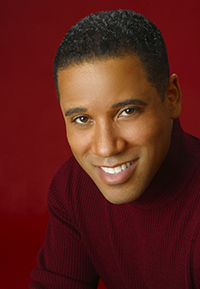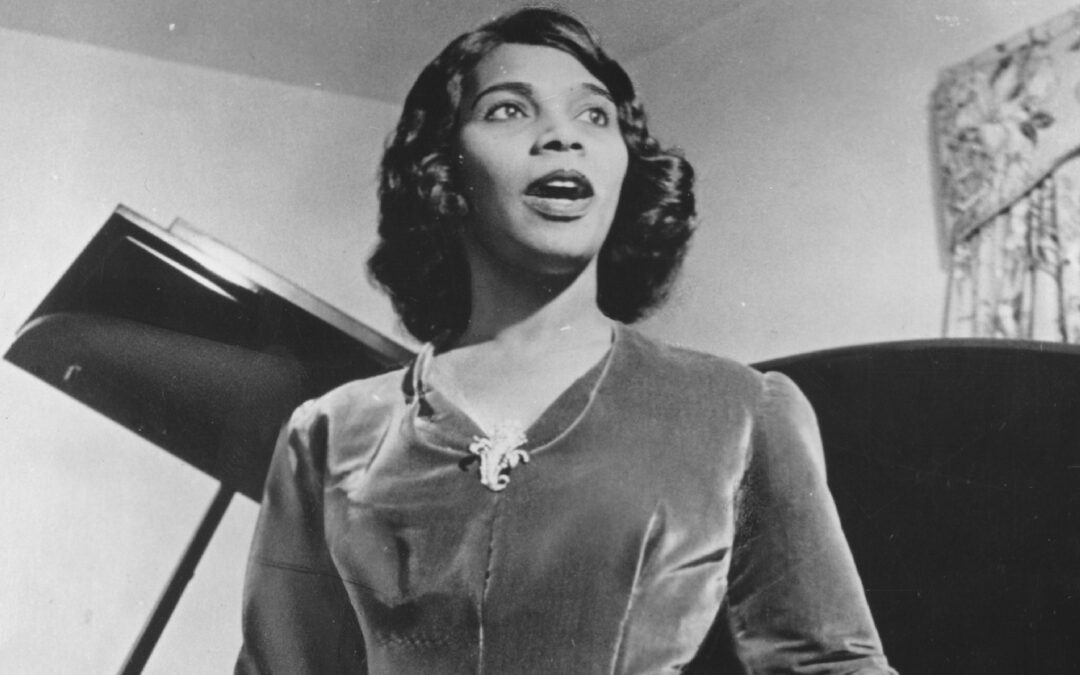
Robert Sims
Robert Sims, professor of music in the NIU School of Music is featured in a PBS American Masters documentary film on renowned American vocalist Marian Anderson. Sims worked as a music consultant, interviewee and actor on the project.
“I was honored to be included in this fabulous film about the great Marian Anderson,” Sims said. “Emmy Award winning director Rita Coburn has infused this film with much love and respect for Miss Anderson and her unique journey.”
Marian Anderson: The Whole World in Hands premieres nationwide Tuesday, February 8 at 8 p.m. CST on PBS, and throughout the month of February on the PBS Video app in honor of Black History Month and Anderson’s 125th birthday. She was born on February 27, 1897.
Sims is featured in this clip, and more content from the film is available at PBS.org.
Clip: In 1919, Marian Anderson traveled to Chicago for a six-week opera course. Decades later, the city’s lasting impression on her was heard through her rendition of the spiritual folk song, “Crucifixion,” which evoked memories of the racial unrest she saw during her time there.
American Masters – Marian Anderson: The Whole World in Her Hands explores the life, career, art and legacy of the African American contralto and civil rights pioneer in her own words using archival interview recordings. Marian Anderson’s singing and speaking voice are heard throughout the documentary, providing new understanding of the woman behind the music.
Spotlighting Anderson’s voice and point of view, the documentary draws from 34 cassette tapes of interviews recorded in the 1950s, when she was preparing to write her memoir, “My Lord, What a Morning,” and other archival interviews. Anchored by key performances in her career, American Masters – Marian Anderson: The Whole World in Her Hands shows how her quiet genius and breathtaking voice set the stage for Black performers in classical music, and a louder voice for civil rights. Additionally, with unprecedented access to the Marian Anderson Estate, the documentary draws on rare audio recordings, photographs and personal correspondence to and from family and friends, including Martin Luther King, Jr., Josephine Baker and Langston Hughes.
“Previous documentaries centered around her life without her own voice. That’s what sets our documentary apart,” said director Rita Coburn. “Marian Anderson directly discusses her personal experiences, allowing the viewer to explore history from her point of view.”
The film also features new interviews with fellow Black opera singers, mezzo-soprano Denyce Graves and tenor George Shirley, who also served on the film’s team of humanities advisers. Additional interviews include Anderson’s friends, contemporaries and those she influenced, including J’nai Bridges (mezzo-soprano), Angela Brown (soprano), Martina Arroyo (soprano), Sandra Grymes (Anderson’s niece), Laura Roosevelt (Eleanor Roosevelt’s granddaughter), Raymond Arsenault, Ph.D., (Author, “Marian Anderson: The Sound of Freedom”) and Jillian Pirtle (National Marian Anderson Museum).
Best known for her concert on the steps of the Lincoln Memorial in 1939, Anderson christened the Washington, D.C., landmark as a place of protest after she was discriminated against on the basis of a “whites only” concert policy at the Daughters of the American Revolution’s Constitution Hall. She garnered interracial support from First Lady Eleanor Roosevelt, the NAACP, Howard University and other leaders and defied the conscience of her time by performing for an integrated audience of over 75,000. The concert reached millions of radio listeners around the world and became an inspiration to the growing civil rights movement, inspiring a 10-year-old Martin Luther King, Jr., to later publish a winning oratorical citing the experience.
Affectionately known to audiences as “The Lady from Philadelphia” and “The People’s Princess,” Anderson’s career was propelled by her talent, but also steered by the limits imposed by racism and segregation. This gifted pioneer, whose strength was rooted in family and community, overcame humiliation, prejudice and financial hardship to become a voice for justice, an internationally renowned master of her craft and the first African American to sing a leading role at the Metropolitan Opera in 1955. Balancing her public triumph with her personal struggles and resilience, American Masters – Marian Anderson: The Whole World in Her Hands charts the impact of one of the world’s greatest singers, whose career provides a window into a time of seismic cultural change.
“Marian Anderson’s legacy creates a bridge as our society continues to sound the call for justice, recognition, reconciliation and the confrontation of racism in order to create lasting change,” said Coburn. “Her ability to create, cull and navigate a worldview, having been born in 1897 and facing down Jim Crow, gives us both hope and yet begs the question: how long will America divide itself along racial lines?”

